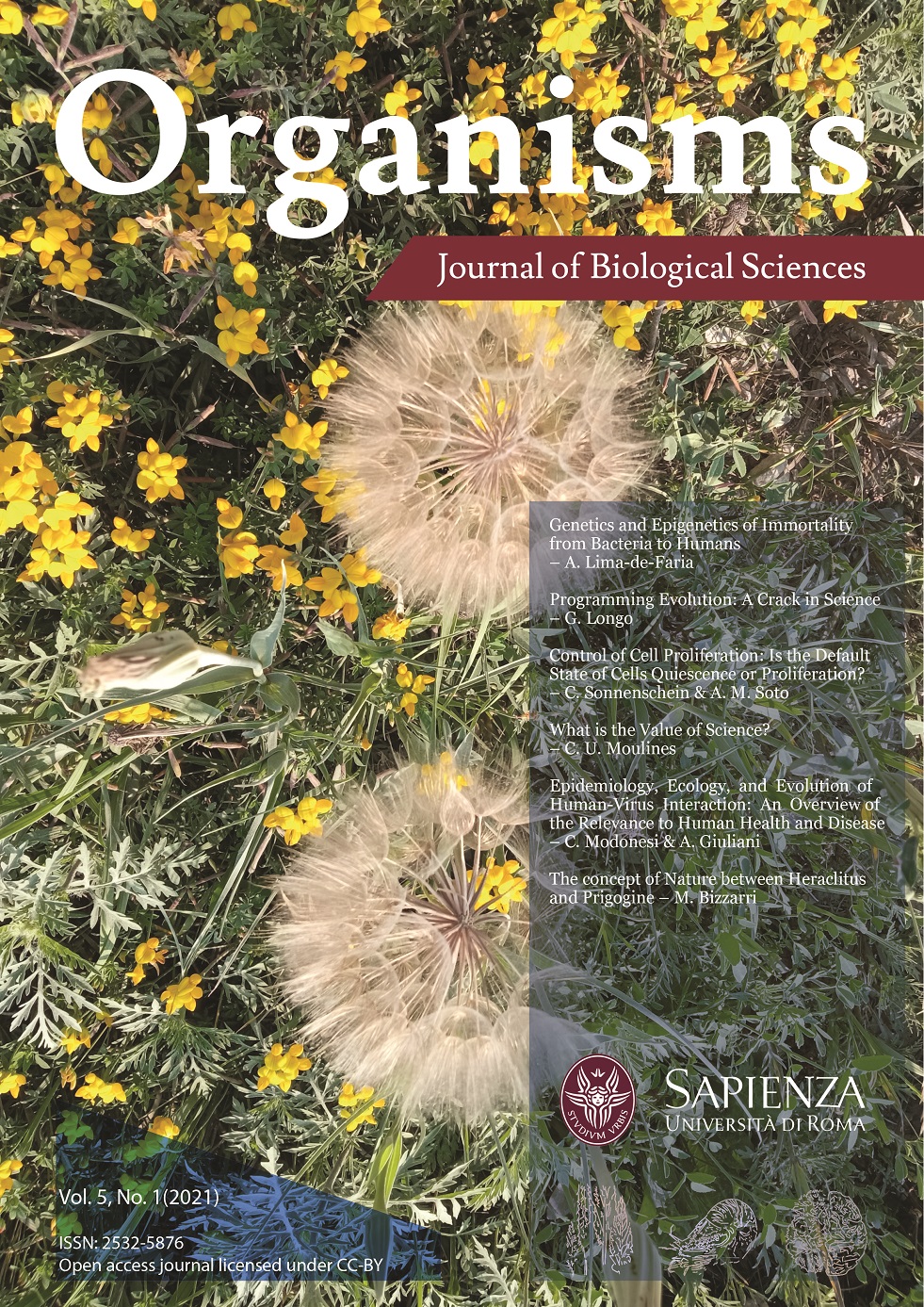The concept of nature between Heraclitus and Prigogine
DOI:
https://doi.org/10.13133/2532-5876/17540Abstract
In the Greek tradition, “physis” denotes both the “nature” (the “essence”) of an entity and its accomplishment, that is to say, its “development”. For example, the embryo is the “essence” of the unfolding organism and, at the same time, the process leading to it. The egg is a symbol of wholeness, but this totality cannot be perceived out of its self-organizing process. In this way, according to Heraclitus, the living being “hides.” Essentially, the Self can only be recognized as an outcome rather than a starting point. This stance, endorsed by Heraclitus and Aristotle, has been left aside by modern scientific research since Bacon’s time when the less noble Stoic inheritance was tacitly assumed. In Stoics’ belief, physis means power (God or otherwise), i.e. the causal principle (causa prima), which is involved in generating any natural process. Having emphasized the “cause”—even in absence of a clear definition of such a concept—the “real process” lost its relevance and its intelligibility was impaired. The description of the process began to be confused with the description of the “entity” (the thing-in-itself), and this representation eventually ended up identifying the “essence” with its (presumed) “primary” causes. This way, natural things and/or processes were re-absorbed into their presumptive causes, missing the true complexity of the natural system.
Published
Versions
- 2021-08-10 (2)
- 2021-08-10 (1)
How to Cite
Issue
Section
License
Copyright (c) 2021 Mariano Bizzarri

This work is licensed under a Creative Commons Attribution 3.0 Unported License.
Copyright Agreement with Authors
Before publication, after the acceptance of the manuscript, authors have to sign a Publication Agreement with Organisms. The authors retain all rights to the original work without any restrictions.
License for Published Contents

You are free to copy, distribute and transmit the work, and to adapt the work. You must attribute the work in the manner specified by the author or licensor (but not in any way that suggests that they endorse you or your use of the work).





